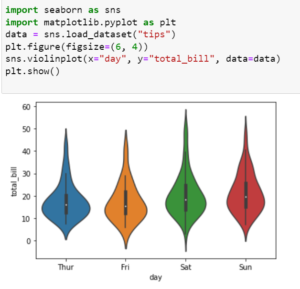Python is an interesting programming language. To learn, understand, and be able to code in python language, one has to know the python syllabus and libraries. Below is the Python syllabus that programmers use in their daily tasks while using the Python programming language
Getting Started:
- History & need of Python
- Application of Python
- User internet or IDE
- Executable or script files
- Program structure
- Installing python
- Program structure
- Advantages of python
- Disadvantages of python
Python Fundamentals
- Working with interactive mode
- Working with script mode
- Python Character set
- Python Tokens, keywords, identifiers, Literals, operators.
- Variables and Assignments
- Input and output in python
Data Handling
Data Types:
- Numbers
- Strings
- Lists
- Tuples
- Dictionary
- Set
- Frozenset
- Bool
- Mutable and Immutable
String Manipulation
- Introduction to python string
- Accessing Individual Elements
- String Slices
- String Functions and Methods
List Manipulation
- Introduction to python list
- Creating List
- Accessing List
- Joining List
- Replicating List
- List Slicing
Tuples
- Introduction to Tuple
- Creating tuples
- Accessing tuples
- Joining tuples
- Replicating tuples
- Tuple slicing
Dictionaries
- Introduction to Dictionary
- Accessing values in dictionaries
- Working with dictionaries
- Properties
Set and Frozenset
- Introduction to set and frozenset
- Creating set and frozenset
- Accessing and joining
- Replicating and slicing
Operators:
- Arithmetic operators
- Relational operators
- Logical operators
- Membership operators
- Identity operators
- Bitwise operators
- Assignment operators
- Operators Precedence
- Evaluating Expression
- Type Casting
Program Control Flow
Conditional Statements:
- The if statement
- The if_else statement
- The if_elif statement
- Nested if statement
- Python Indentation
Looping and Iteration
- The For Loop
- The While Loop
- Loop else statement
- Nested Loops
- Break and continue
The Range Function
- Introduction to range {}
- Types of range {} function
- Use of range {} function
Introduction To Functions
Built-in Functions:
- Introduction to functions
- Using a function
- Python function types
- Structure of python functions
User Defined functions
- Structure of a python program
- Types of functions
- Invoking UDF
- Flow of Execution
- Arguments and parameters
- Default Arguments, named arguments
- Scope of variables
- Lambda function
Recursion Function
- Use of recursion function
Modules and Packages
Built-in Modules:
- Importing modules in python programs
- Working with Random modules, such as built-ins, OS, time, datetime, calendar, sys, etc.
User Defined Functions
- Structure of python modules
File Operations
- Text and Bytes files
- Reading and writing files
- Other file tools
MS Excel files
Introduction to MS Excel files
Classes And Objects
- Classes as user defined data types
- Objects as instances of classes
- Creating class and objects
- Creating objects by passing values
- Variables and methods in a class
Important Libraries in Python Programming
Data Science:
Numpy: This is a library for python programming language used for adding support for multi-dimensional arrays. It also has functions for working in domain of linear algebra, fourier transform, and matrices.
Pandas: This is a software library written for the python programming language, it is used in manipulating data and data structures.
Scipy: This is a python library that is specifically used for scientific computing. With scipy, users would be able to manipulate and visualize the data. Moreso, Scipy is built on the Numpy extension.
Sci-Kit Learn
Matplotlib: This is a plotting function for python, it helps users embed plots into application. Below is an example of what we can do with Matplotlib
Web Development
Django: This is a top python web development framework that encourages rapid development, clean and pragmatic design.
Flask: Flask is a lightweight and minimalist python web development framework perfect for small-scale projects.
CherryPy: This is a python web development framework that follows the MVC architectural pattern.
Web2Py: This is a scalable python framework that allows users to develop web applications quickly and smoothly.
Game Development
Pygame
Panda3d
Pykyra
Ursina Engine
Pyglet
Graphical User Interface (GUI)
Tkinter
Kivy
Wxpython
Pyside2
Python Interview Questions (nellyvinceblog.com)





GIPHY App Key not set. Please check settings